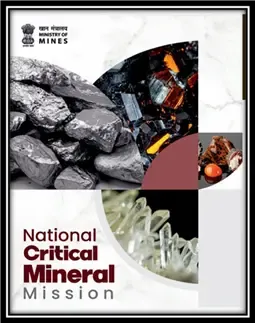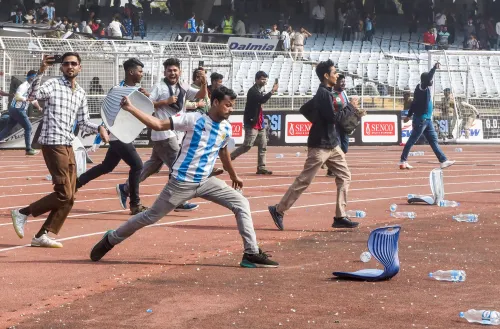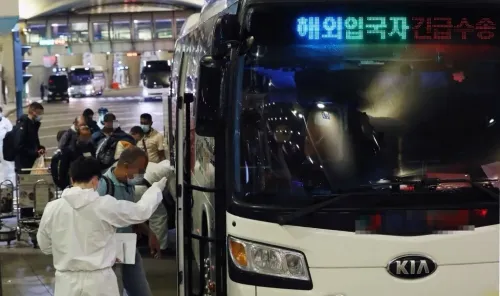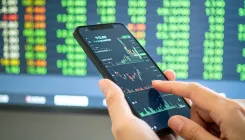What Are the Newly Recognised CoEs for R&D in Critical Minerals?

Synopsis
Key Takeaways
- The Ministry of Mines has recognized IISc Bangalore and C-MET Hyderabad as new Centres of Excellence.
- The total number of CoEs is now nine.
- These CoEs will focus on R&D in critical minerals.
- The initiative aims to secure supply chains for critical minerals.
- The Critical Mineral Recycling Incentive Scheme has been launched to promote recycling.
New Delhi, Oct 25 (NationPress) The Ministry of Mines has officially acknowledged two additional institutions: the Indian Institute of Science (IISc) in Bangalore and the Centre for Materials for Electronics Technology (C-MET) in Hyderabad, as Centres of Excellence under the National Critical Mineral Mission, as announced on Saturday.
According to the Ministry of Mines, “The Centres of Excellence (CoEs) will spearhead groundbreaking research and development aimed at enhancing technology readiness to pilot-plant and pre-commercial demonstration levels (TRL 7-8) for critical minerals that support clean energy, mobility transition, electronics, defence, and space sectors.”
This initiative is designed to consolidate core competencies to develop technologies that ensure secure supply chains for critical minerals.
With the addition of these new approvals, the total number of recognised CoEs has now risen to nine, following the initial recognition of seven institutes, as per the Ministry.
“The CoEs will engage in transformative research that aims to bolster and advance the nation’s capabilities in science and technology regarding critical minerals,” the Ministry added.
Each CoE will function as a consortium, utilizing a hub-and-spoke model to enhance R&D in critical minerals and unify the core competencies of each participating entity.
These CoEs must incorporate at least two industry partners and two R&D or academic partners within their networks.
Collectively, the nine recognised CoEs have attracted approximately 90 industry and academic or R&D spokes, as mentioned by the Ministry.
As a part of the National Critical Mineral Mission, the Centre earlier this month initiated the application process for the Rs 1,500 crore Critical Mineral Recycling Incentive Scheme.
This scheme is aimed at boosting the industry’s capacity to recycle critical minerals from e-waste, spent lithium-ion batteries, and other materials, such as catalytic converters from end-of-life vehicles.
Incentives for larger recyclers are set at Rs 50 crore, while smaller recyclers will be eligible for up to Rs 25 crore.










